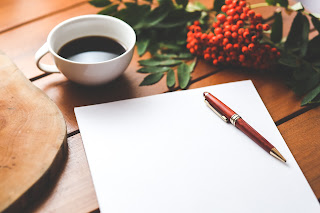Writing a screenplay is a difficult process, but it’s made easier with an outline. An outline is a roadmap for your script. It gives you the full story from beginning to end and helps you understand how each scene fits into the story. This way, you can see your story and make sure it works without distractions such as dialogue or descriptions. It's also a great way to get your thoughts in order and figure out what direction to take next if you get stuck.
Why You Need a Screenplay Outline
A screenplay outline can be challenging, but it's also extremely helpful. You might think you don't need an outline because your story seems clear. However, you might end up with scenes that don't work for the story's flow, or get confused in your subplots. Because there are so many moving parts, without an outline, it's hard to keep track of everything when writing a script.
An outline doesn't have to be fancy; it just has to tell you what happens in each scene and how they connect together. This makes it much easier than trying to write an entire screenplay without any direction at all.
What is a Screenplay Outline
An outline is a basic blueprint for your screenplay that helps you figure out how each scene fits into the story. This way, you can see where your story is going and make sure it moves forward. You can still write your script freely, but having an outline gives you a basic understanding of what the finished script will look like.
How to Write a Screenplay Outline the Easy Way
A screenplay outline is a roadmap for your story. It helps you understand how each scene fits into the story, and it gives you a full picture of it, from beginning to end. That's where the outline comes in handy.
There are many ways to write an outline, but we'll focus on one simple method:
1. Establish your story's basic three-act structure.
Define where your acts will begin and end and the key moments of each one.
2. Start with the scenes that you already have.
You probably already envision certain scenes for your script. Those include important moments that your story cannot live without. Start with those.
3. With your basic structure in mind, brainstorm about what other scenes can help tell your story. Check my beat sheet guidelines to ensure that you cover all the key moments.
4. Think of scenes that can help you to connect your written scenes.
Quick tips to ensure your scenes move your story forward
- Introduce the characters that are in the scene.
- Introduce the conflict.
- End the scene with something that sets up what happens next.
The Importance of Having an Outline
If you're just starting out in the world of screenwriting and don't know where to start, I recommend you make an outline every time you start a project. As a more experienced writer, you can choose not to have one, but it's still a very useful tool.
It's easy for us writers to become overwhelmed with all our thoughts. With an outline, you'll see where your story is going and what sorts of scenes need to be written (or rewritten) next.
The outline is one of the most important steps in your screenplay writing process, and now you are ready to create yours.
Happy writing!
* This blog will soon be moving out to a new address, subscribe to my mailing list to be the first to know.


Comments
Post a Comment